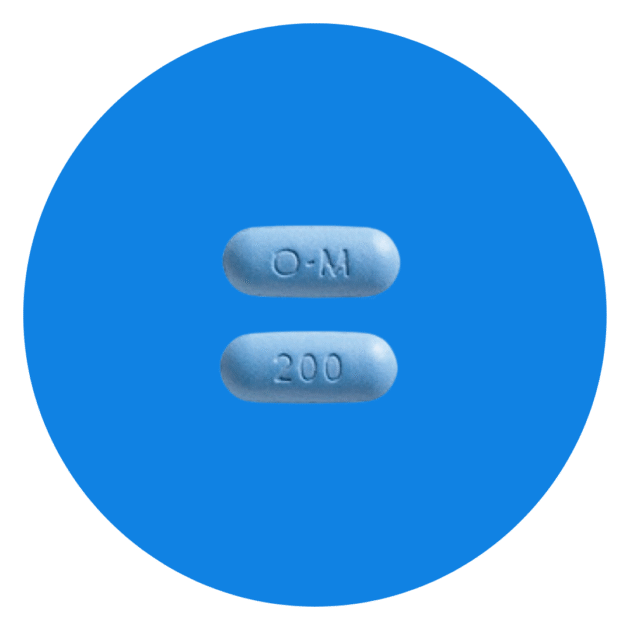Description
What is tramadol?
Tramadol is an opioid agonist that may be used to treat moderate to moderately severe chronic pain in adults.
- Extended-release forms of tramadol may be used in adults who require around-the-clock treatment of their pain for an extended period.
Brands of tramadol include ConZip, Qdolo, Ultram, and Ultram ER. Generic tramadol is available.
Tramadol first gained FDA approval on March 3, 1995. Originally it was classified as a non-controlled substance but it was reclassified in 2014 to Schedule IV of the Controlled Substances Act with restrictions on its prescribing.
Tramadol uses
Tramadol is used for the management of moderate to moderately severe pain in adults, including postoperative pain (pain after surgery).
Tramadol treats pain severe enough to require opioids and may be used as an alternative to other forms of pain relief that did not relieve pain well enough or were not tolerated.
Tramadol extended-release capsules may be used by adults who require around-the-clock treatment of their moderate to moderately severe chronic pain for an extended time.
Tramadol should not be used in children younger than 12 years old, or anyone younger than 18 years old with other risk factors (such as breathing problems), or who have recently had surgery to remove their tonsils or adenoids.
Extended-release tramadol (Ultram ER) should not be given to anyone younger than 18 years.
Is Tramadol an opioid?
Yes, tramadol is an opioid. The opioid activity of tramadol is due to its binding to mu-opioid receptors.
Tramadol side effects
Common side effects
The most common side effects of tramadol are:
- nausea
- constipation
- dry mouth
- drowsiness
- dizziness
- vomiting.
Serious tramadol side effects and warnings
Tramadol may cause serious side effects, some of which may be fatal.
Tramadol can slow or stop your breathing and may be habit-forming. MISUSE OF THIS MEDICINE CAN CAUSE ADDICTION, OVERDOSE, OR DEATH, especially in a child or other person using the medicine without a prescription. Keep this medicine where others cannot get to it. Do not take more tramadol than prescribed as an overdosage can be fatal. Selling or giving away this medicine is against the law.
- A person caring for you should give naloxone and seek emergency medical attention if you have slow breathing with long pauses, blue-colored lips, or if you find it hard to wake up. Serious breathing problems may be more likely in older adults and people who are debilitated or have wasting syndrome or chronic breathing disorders.
- Call your doctor at once if you have:
- noisy breathing, sighing, shallow breathing, breathing that stops during sleep
- a slow heart rate or weak pulse
- a light-headed feeling, like you might pass out
- seizure (convulsions) or
- low cortisol levels – nausea, vomiting, loss of appetite, dizziness, worsening tiredness or weakness.
Seek medical attention right away if you have symptoms of serotonin syndrome, such as agitation, hallucinations, fever, sweating, shivering, fast heart rate, muscle stiffness, twitching, loss of coordination, nausea, vomiting, or diarrhea.
Seizures have been reported in patients taking tramadol. Your risk of seizures is higher if you are taking higher doses than recommended. Seizure risk is also higher in those with a seizure disorder or those taking certain antidepressants or opioid medications.
You should not take tramadol if you have severe breathing problems, a head injury or increased pressure inside your skull, a blockage in your stomach or intestines, or if you have recently used alcohol, sedatives, tranquilizers, narcotic medication, or an MAO inhibitor (isocarboxazid, linezolid, methylene blue injection, phenelzine, rasagiline, selegiline, tranylcypromine, and others). Tramadol should not be used if you are suicidal or prone to addiction.
Fatal side effects can occur if you use this medicine with alcohol, or with other drugs that cause drowsiness or slow your breathing. People taking extended-release forms of tramadol should not consume alcohol-containing beverages at the same time. Alcohol is also not advised with immediate-release forms of tramadol.
Serious allergic reactions, including anaphylaxis, have occurred with tramadol, some of which caused death. People who are allergic to other opioids are at higher risk. Other hypersensitivity reactions include itching, hives, narrowing of the airways, swelling of the face and airways (angioedema), and serious skin reactions such as Stevens-Johnson Syndrome. Get emergency medical help if you have signs of an allergic reaction to tramadol (symptoms include hives, difficulty breathing, swelling in your face or throat) or a severe skin reaction (fever, sore throat, burning in your eyes, skin pain, a red or purple skin rash that spreads and causes blistering and peeling).
Tramadol hydrochloride extended-release capsules/tablets may complicate a healthcare provider’s clinical assessment of an acute abdominal condition. They should also not be used by people with liver or kidney disease.
Taking tramadol during pregnancy may cause life-threatening withdrawal symptoms in the newborn.
Tramadol should not be given to a child younger than 12 years old, or anyone younger than 18 years old who recently had surgery to remove the tonsils or adenoids. Extended-release tramadol (Ultram ER) should not be given to anyone younger than 18 years.
Tramadol may cause drowsiness or affect your ability to drive or perform hazardous tasks. Do not perform these tasks if tramadol causes confusion, mental impairment, or drowsiness.
Tramadol can cause withdrawal symptoms if stopped suddenly after being taken for a long period of time.




Reviews
There are no reviews yet.